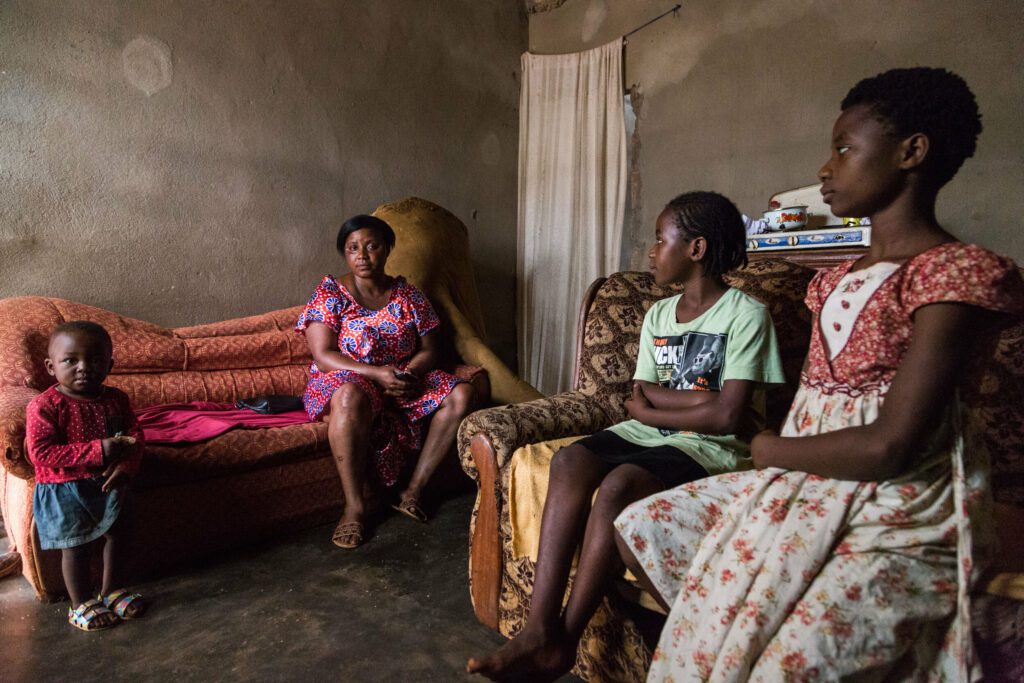As Cameroon struggles to get its bearings in the midst of the COVID-19 crisis, civil war continues to rage in the English-speaking North West and South West (NWSW) regions of the country. On February 14, government soldiers and at least 30 armed ethnic Fulani massacred 21 people, including 13 children and one pregnant woman, in Ngarbuh village in the North West province. The massacre is one of the most gruesome killings in the conflict, which has plagued the NWSW for more than three years and has displaced 700,000 people.
Tensions between the Fulani – called Mbororo in Cameroon – and other Anglophone communities are not new, but the involvement of the Mbororo introduces a new ethnic dynamic in the already tangled webs of tensions of the NWSW conflict. Regionally influential countries, France in particular, must increase humanitarian aid financing and pressure the Cameroonian government to engage in meaningful negotiations with the armed factions and to stop fueling intra-Anglophone divisions. Without both political pressure and funds to address the humanitarian situation, the NWSW conflict will only lead to more irreparable damage to the lives of Cameroonians.
NWSW Conflict
The Anglophone-Francophone division is a consequence of the partitioning of the German Kamerun Protectorate into two parts administered by the British and the French in 1916. The two achieved independence in 1961 and reunited, but decades of misrule have led to the emergence of many social, economic, and cultural grievances held by the Anglophones.
Peaceful protests by Anglophone teachers and lawyers in 2016 were met with force by the Cameroonian military, causing the outbreak of armed conflict in 2017 with pro-independence fighters seeking to create their own Anglophone state, called Ambazonia. Now, multiple armed groups are fighting government forces, and civilians are caught in the crossfire. The crisis has forced 700,000 to flee their homes and killed approximately 3,000 people. Only 17 percent of schools in the NWSW are functional, and around one in three people in the NWSW are in need of humanitarian aid.
The Mbororo in Conflict
Mbororo pastoralists migrated into the region’s grassfields of the current North West region of Cameroon in the early twentieth century and lived harmoniously with local farming populations for decades. However, colonial grazing rules hindered their way of life, and the Mbororo began to be seen as outsiders; uncontrollable by the colonial administration. This marginalization continued after Cameroon’s independence, as clashes over resources increased tensions between the Mbororo pastoralists and the farmers who saw themselves as “natives.”
Tensions between the Mbororo and farmer communities in the North West are worsening significantly in the context of the NWSW conflict, as separatists accuse Mbororo of cooperating with the government. Separatists have also accused the government of arming the Mbororo and claimed that pro-regime groups pose as separatists and attack Mbororo populations to sow discord between Anglophone communities. While some of these accusations may be true, many of these claims have yet to be substantiated and the widespread generalizations of the Mbororo are proving deadly.
In the past few years, Mbororo pastoralists have suffered attacks including hostage-taking, killings, maiming of cattle, and destruction of property. In just the last quarter of 2018, this violence caused the displacement of 2,500 Mbororo. These confrontations have escalated to clashes between armed separatists and Mbororo fighters, some of which come from neighboring Nigeria, throughout 2019 and 2020.
What Now?
France still wields significant influence in Cameroonian politics but has kept a low profile concerning the NWSW conflict. It supports an inclusive political solution to the crisis, but has consistently emphasized the need for unity and stability in Cameroon. This rhetoric mirrors the government’s narrative and fails to emphasize a resolution that addresses the many genuine grievances at the root of the conflict.
In a phone call with French President Emmanuel Macron on March 1, Cameroonian President Paul Biya agreed that an impartial inquiry is necessary to investigate the massacre at Ngarbuh. After previously denying the military’s culpability in the killings, the government arrested nine soldiers on March 2, only a day after Biya’s call with Macron. While this may showcase France’s clout, it is not nearly enough to address the killings of Anglophones by the military nor does it bring to account the government’s role in fanning the conflict’s intra-Anglophone ethnic tensions. While some efforts to negotiate were made in October 2019, the government failed to engage in good faith and, in turn, the talks were boycotted by the separatists. Macron must keep the pressure on Biya to engage in meaningful negotiations with the separatists. Beyond the political elements of the conflict, humanitarian needs must also be addressed. Currently, humanitarian response to the conflict is being hampered by an absence of funds – the humanitarian funding requested by the UN for 2019 was only 43 percent met.
The NWSW crisis is already devastating. The government’s stoking of linguistic and ethnic tensions within the Anglophone regions has caused tremendous damage in the NWSW. The Ngarbuh massacre and the development of new front lines between communities in these regions highlights the likelihood that the crisis can and will continue to spiral. France and other international powers must act to address the humanitarian crisis and pressure the Cameroonian government, and the Biya’s regime must end the practice of mobilizing Mbororo groups. These actions are necessary to halt the conflict and prevent further harm to Cameroon’s diverse communities.
Claire Hazbun is Refugees International’s Africa program intern.
Source link : https://www.refugeesinternational.org/cameroons-nwsw-crisis-ignites-new-fault-line-of-conflict/
Author :
Publish date : 2020-04-06 07:00:00
Copyright for syndicated content belongs to the linked Source.
